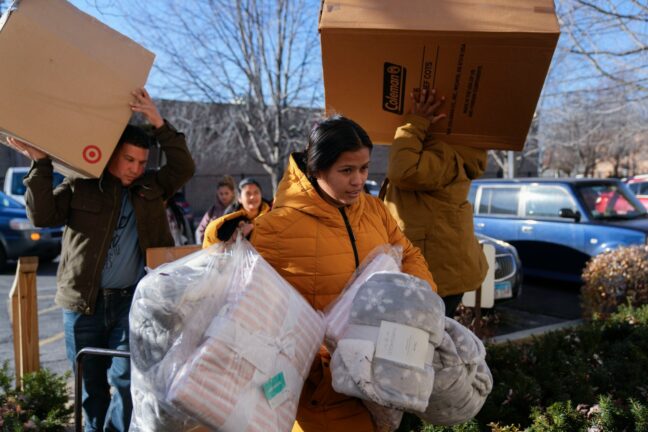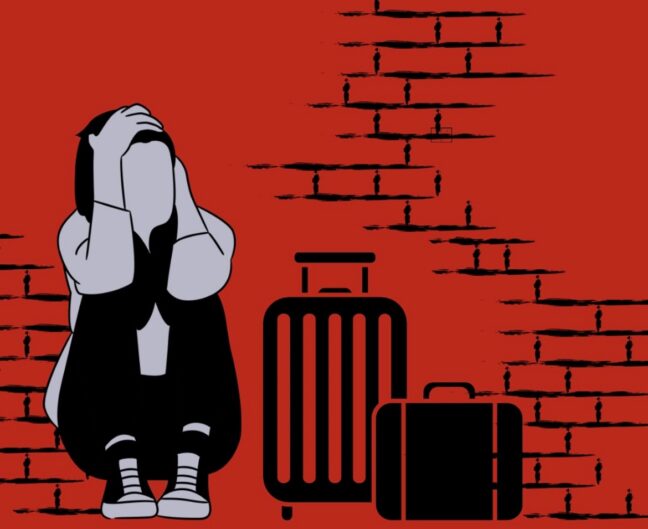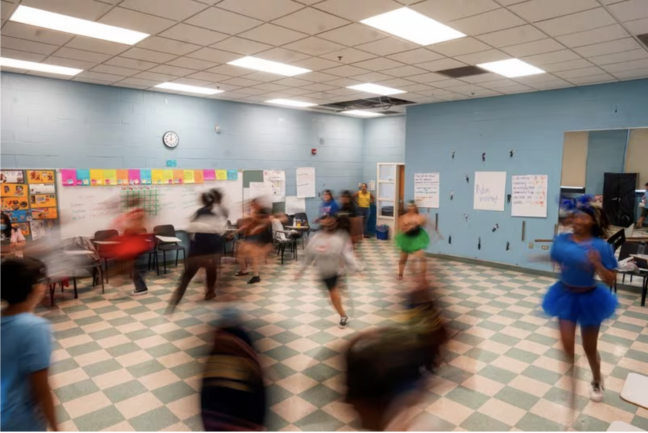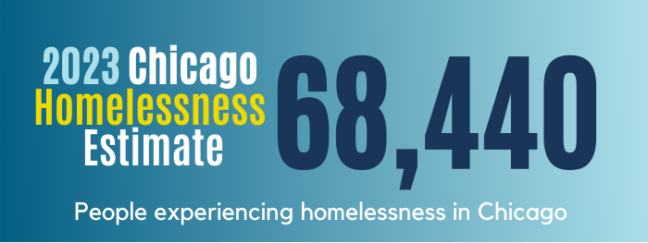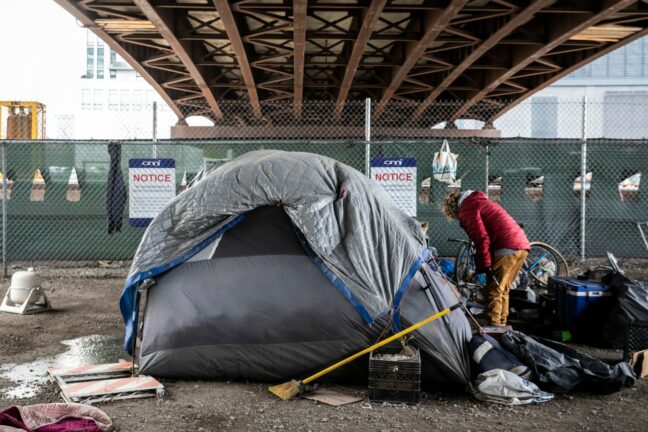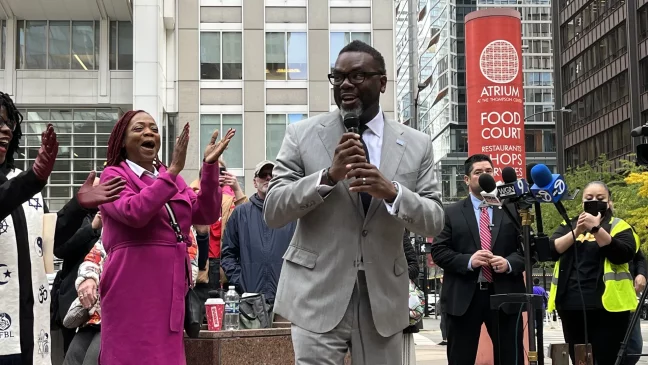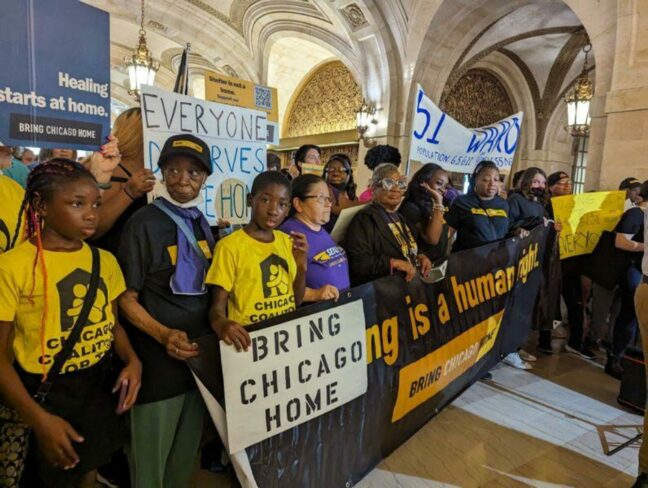Thousands of migrants who lived in city shelters have stayed longer than 60 days — the length of a looming city deadline that will start affecting the first wave of migrants next month.
A WBEZ analysis of the lengths of their shelter stays finds that roughly 7 in 10 have stayed longer than 60 days, and that an average stay was 76 days for migrants who had exited shelter before Nov. 1.
If housing hasn’t been secured by the time a migrant’s shelter stay is up, they will have to give up their spot and return to the city’s landing zone for new arrivals and put in another request for shelter. Only under extenuating circumstances, such as a medical crisis, extreme cold weather or a pending move-in date with a signed lease, will extensions be granted, according to the city.
It’s difficult to discern how the 60-day deadline may impact the city’s overall homeless services system, said Sam Paler-Ponce, the Chicago Coalition for the Homeless’ interim associate director of policy, who stressed that long-term housing solutions are ultimately needed.
“It looks like the new arrival system and the Chicago homeless services system have been kind of separate,” Paler-Ponce. “And at the 60-day mark, we might start to see these populations overlap quite a bit.”
Volunteers and advocates are fearful the policy will disrupt the modicum of stability asylum-seekers may have achieved.

